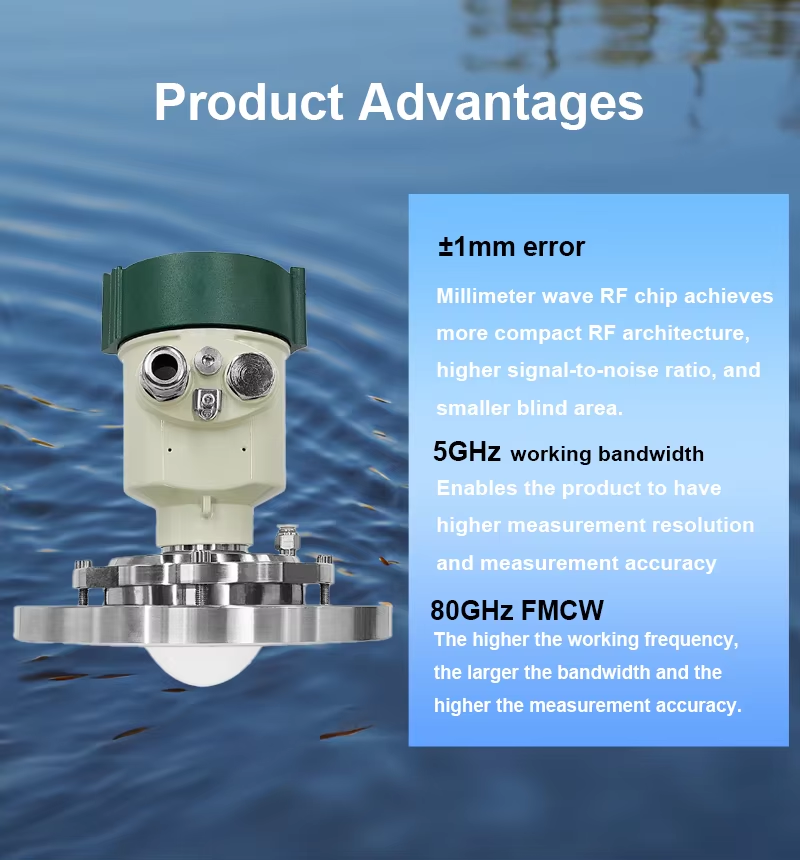Istanbul, Turkey — As Turkey rapidly urbanizes, cities across the nation are turning to innovative technologies to improve infrastructure, enhance resource management, and ensure public safety. Among these advancements, radar level meter sensors have emerged as a critical tool for managing water resources, monitoring environmental conditions, and improving urban planning. Their implementation is transforming how Turkish cities address challenges related to flooding, water supply management, and infrastructure efficiency.
Understanding Radar Level Meter Sensors
Radar level meter sensors utilize microwave radar technology to measure the distance to a surface, typically water within rivers, lakes, tanks, or other storage facilities. These sensors emit radar signals that bounce off the surface of the liquid and return to the sensor. By calculating the time it takes for the signal to return, the sensors can accurately determine the level of the liquid.
This technology offers numerous advantages over traditional measurement methods. Radar sensors are non-contact devices, making them resistant to corrosion and fouling, and capable of functioning in harsh weather conditions. Their accuracy and reliability make them ideal for a myriad of applications related to water management in urban settings.
1. Flood Management and Prevention
One of the most significant benefits of radar level meter sensors is their role in flood prediction and management. Cities like Istanbul and Ankara, which are prone to seasonal flooding due to intense rainfall and poor drainage systems, are utilizing these sensors to provide real-time data on water levels in rivers and reservoirs.
By monitoring water levels continuously, local authorities can respond more effectively to rising waters. Advanced warning systems can be established, allowing for timely evacuations and emergency responses, potentially saving lives and reducing property damage. For example, during the heavy rains of 2022, municipalities equipped with radar level sensors were able to issue warnings that helped mitigate the impacts of flooding in vulnerable areas.
2. Efficient Water Resource Management
In Turkey, which faces increasing challenges related to water scarcity and allocation, radar level meter sensors are crucial for managing water resources more efficiently. Municipalities are implementing these sensors in water treatment facilities and distribution systems to monitor water levels, detect leaks, and ensure that supply meets demand.
By providing accurate real-time data, radar sensors enable city planners to make informed decisions about water reserves, distribution, and conservation. This is particularly important in cities like Konya and Gaziantep, where agricultural water usage needs to be balanced with urban consumption. Improved management ensures that both agricultural and urban needs are met, promoting sustainable water use practices.
3. Environmental Monitoring and Sustainability
Radar level meter sensors also contribute to environmental sustainability initiatives in Turkey. By monitoring water bodies, these sensors help track changes in water levels and quality, which can indicate environmental shifts due to climate change or urban encroachment.
For instance, cities such as Izmir and Antalya are using this technology to monitor coastal water levels and detect changes in marine ecosystems. This data is vital for developing strategies to protect sensitive habitats and biodiversity in these regions, emphasizing an integrated approach to urban planning that considers environmental health.
4. Urban Infrastructure and Smart City Development
As Turkey embraces the concept of smart cities, radar level meter sensors play an integral role in enhancing urban infrastructure. Their integration into smart cities frameworks allows for the accumulation of valuable data that informs urban development.
Cities like Bursa are incorporating these sensors into their smart grid systems, optimizing everything from energy use to waste management based on real-time data. The insights gained from radar level sensors can aid in infrastructure maintenance, helping to prioritize repairs and upgrades in flood-prone or water-sensitive areas.
5. Innovative Transportation Solutions
Furthermore, the application of radar level meter sensors extends beyond water management into transportation. In cities with heavy rainfall, understanding water levels around roads and bridges is crucial for maintaining safe travel routes. These sensors provide data that can be used to manage traffic flows effectively during adverse weather conditions, ensuring public safety while minimizing traffic disruptions.
Conclusion
Radar level meter sensors are making a significant impact on Turkish cities by enhancing flood management, improving water resource efficiency, supporting sustainable environmental practices, and enabling the development of smart urban infrastructures. As Turkish cities continue to grow and face modern challenges, the integration of innovative technologies like radar level sensors will be essential in creating resilient, sustainable, and efficient urban environments.
The ongoing adoption of these technologies reinforces Turkey’s commitment to modernizing its urban landscapes while ensuring the safety and well-being of its citizens, illustrating how innovation can pave the way for a brighter, more sustainable future for its cities.
For more Water radar sensor information,
please contact Honde Technology Co., LTD.
Email: info@hondetech.com
Company website: www.hondetechco.com
Post time: Feb-13-2025


